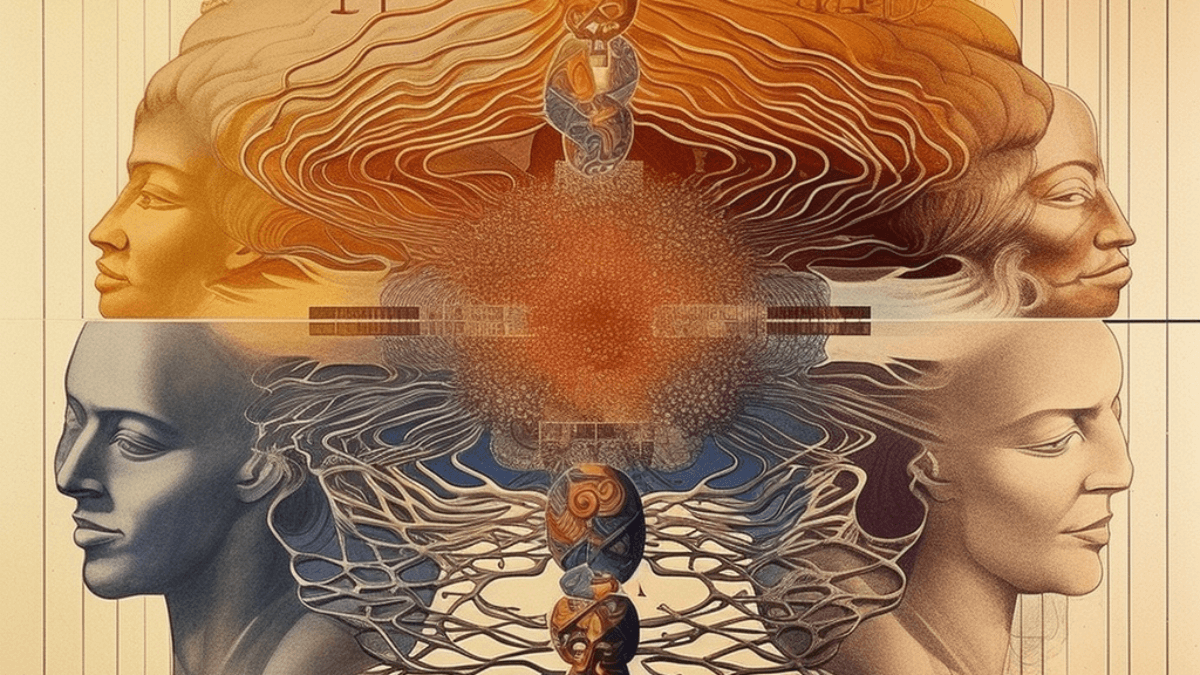There is the presumption that there would be a bacchanalian free-for-all if we did not legislate all our behavior. But this is the result of a deep-seated misperception that occurs when we don’t understand that people who can feel have no desire to consume with abandon. Again, not because it is wrong or unethical, but because it does not feel good. It feels bad, in fact, and blocks the only thing that does feel good. The second misunderstanding is the cause of gluttony—which happens to be restriction. Extreme poles create extreme poles.
What we repress does not stay down, but we develop a fascination with it. In fact, it becomes a more virulent form of it, one created in secrecy and darkness. Nowhere do we see this more than in the split between spirituality and sexuality.
Sexuality thus became the prime adversary of spirituality, precisely because of its unassailable power.

In fact, the primary work of most spirituality is to sublimate the Erotic force, to bring it to “the light,” and to spiritualize it. And yet, no one ever suggests we could eroticize spirituality, turn down all the bright lights, humanize, and bring forward its richness.
Spirituality so often holds itself in opposition to the primal force of sexuality without acknowledging it actually exists because of and not in spite of sexuality. It is just that in this round, sexuality plays the bad guy.
Somewhere along the line, human beings became fascinated with themselves to the extent they developed an obsession with immortality, then built an entire belief system based on detachment from the temporal, the mortal, the non-eternal. This is where Eros says, What would happen if we just figured out how to live this life before aiming for eternity?
And if we experience this now, we will be ready to go without regrets, having lived fully. Eros takes a salt-of-the-earth approach.
Whatever our flavor, whatever our belief, whoever our master or savior, Eros does not want to take us away from that in the least. In fact, it wants us to deepen and eroticize the relationship to it, to open the Erotic dimension of intimacy and the felt experience.

What Eros does is allow us to have our consequences. This is one of the pitfalls of the adult aspect of Eros.
It does not promise to save us from anything. And to frustrate matters even more, it does not offer us an instruction manual on how to get it right.
We can open the Erotic dimension and find intimacy, beauty, and richness inside of any situation. Eros will train us how to do that. It will take us down from the white tower of soft nimbus spirituality and throw us into rocky or swampy terrain and give us power
Or we can get resentful of our conditions and deadbolt that door shut, proving to the mind that always wants to be right that we should have never entered Eros or that we should have stayed solely in the spiritual where we did not have to face these difficulties.
And Eros will say Yes, you are right. But for a totally different reason. We are right because the mind that can be with Eros is the mind that approaches every situation with gusto. That includes terror, perhaps, but it is life-driven gusto to go wherever Eros would have us go, knowing that inside of every seemingly inescapable condition we may believe ourselves a prisoner to is a gem.

Alternatively, we can get humble and ask Eros not to change our circumstances (we need those to learn from), but to open the Erotic door and find a depth and richness beyond comprehension.
That is the one promise of Eros. We make the choice, we do the heavy lifting, we take the risk—but the reward is life itself.
We may not become a good person but we will become the person we are—a person with a deeper, more sustainable felt-sense reality where we live out all of the morally imposed commandments—not out of compliance, but out of desire. A component to Eros is that the truer commandments are self-evident because we can feel their truth.
No one has to tell us to not commit adultery, not because we believe in marriage, but because someone does and that person would get hurt and we would feel that. No one has to tell us to not kill because killing would be painful. We would not have the desire, so no one would have to make a rule. And sure, we may not choose to ascribe to some of the institutional beliefs.

We may discover that some cherished forms, for example, kill life rather than foster it. That what we call love is often a grasping that strangles love and prevents it from flowing.
That what we call meaningful is often a step out of time from the now that meaning actually occurs in and more than enough meaning exists in just this moment. But that will be up to us. We will have the life-seeking rod inside that will guide us to the perfect truth for our unique expression.
And we may not always be politically correct or even spiritually correct. Eros believes we are all a lot more resilient than we believe ourselves to be, and wants us to discover that as well. For this, we may not be liked.
It means we are not absent from our own lives—an actual presence is available, and other people get to have the whole range of experience they want to have in relating to it.
In the end, if we practice every moment from now until the end of our life and into the afterlife (if there is one), we will be granted Eros’s highest ranking: that we brought out the truest version of ourselves we could have.